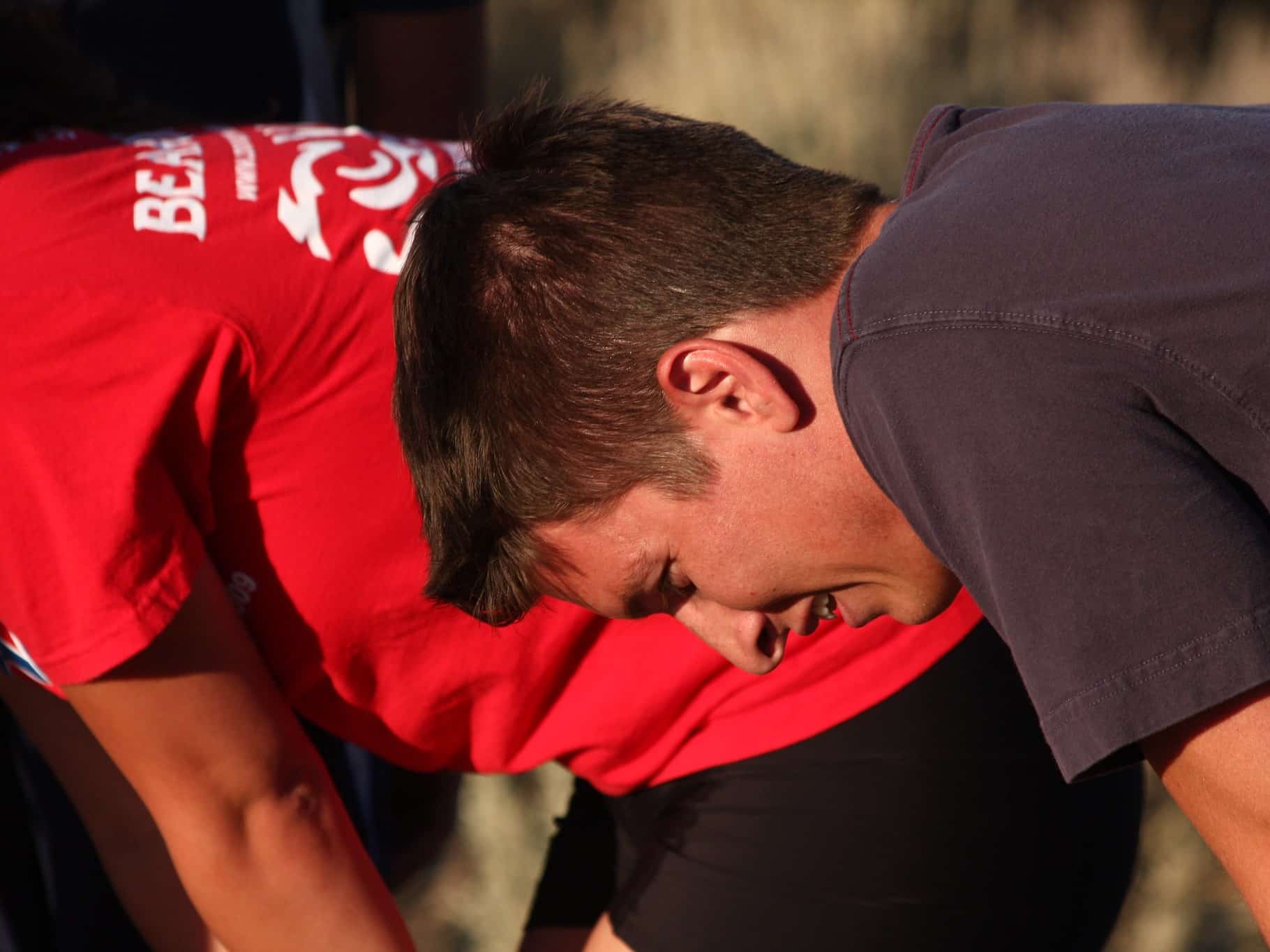Last updated on November 27th, 2020 at 12:33 pm
For those of us working a tough schedule, or looking to add mileage during the early morning, sleep often gets sacrificed. If you’re sacrificing sleep to get your run in, you’re not alone. But what does running while sleep-deprived do to your performance, and does the lack of sleep affect the quality of your runs?
Through the rest of this post, we seek to answer the most commonly asked questions about lack of sleep and running.
Does Lack of Sleep Affect Running?
According to a study referenced by the American Academy of Sleep Science, chronic sleep restriction negatively affects athletic performance (source).
Continual loss of sleep reduces aerobic fitness, speeds how quickly you feel exhaustion, and can impair your ability to recover from heavy exercise like long-distance runs.
RELATED: How Early is Too Early For Morning Runs?
So, in short, yes, lack of sleep definitely impacts your running; whether you notice it or not. According to a James Madison University study, some of these ill affects can be felt from just one night of lost sleep (source).
How Many Hours of Sleep do Runners Need?
Elite runners are like other elite athletes… they benefit greatly from increased sleep durations.
According to, Sleep Hygiene for Optimizing Recovery in Athletes: Review and Recommendations, getting approximately 9 hours of sleep each night is ideal. While getting 9 hours each night might be a stretch for some runners, the study states that “sleep is arguably the single most important factor in exercise recovery.”
RELATED: Best Compression Recovery Boots
For ultrarunners, marathoners, or anyone looking to make strides in their running efforts, increased sleep durations are HUGE.
Can You Run on No Sleep?
For the most hardcore runners, there are inevitably times where you want to run on limited or no sleep. Ultrarunning comes to mind as an example where part of the race itself will require you to run through the night, in essence, intentionally depriving yourself of sleep.
Yes, it is possible to run on no sleep, but runners will likely experience negative effects from their sleep deprivation in the form of impacted performance and decreased cognitive functioning (source).
RELATED: Best GPS Watches For Trail & Ultrarunning
While sleep deprivation can be fought through occasionally, it is not recommended to consistently run on no sleep. The reason being, studies have found losing a night of sleep to cause negative impacts that linger longer than the next day (source). This means loss of sleep can compound over time and further affect your goals.
Develop Routines, Get Sleep, Run Better
Sleep is possibly the most important daily factor for lifelong health; this should not be ignored when trying to balance your sleep intake with your running routine.
Here are some simple tips to ensure you get more sleep each night which will set you up for a more successful training regimen:
- Develop a routine: Have a general bedtime and goal number of hours to sleep. Schedule work, work-outs, and even meals to better get your body to a place where it knows when to rest.
- Eat dinners earlier in the day: We all love the late night snack, but it can sometimes signal to your body that you’re not ready for bed. Eat dinners and snacks earlier to increase the likelihood of a solid sleep.
- Prioritize sleep over other things: We all have done it… sacrificing sleep for… well… anything. Whether a super early run, or a work meeting, or a night out. You can still have all those things, but make sure you schedule your sleep to ensure you get the hours you need to fully function.
- Hydrate properly through the day: If you are a competitive runner it is likely your runs are challenging. Hydrating throughout the day can help you avoid cramps during the night that might wake you up.
While the above tips seem like obvious guidelines, it is surprising how we all find a way to make excuses when we want to do something other than sleep.
RELATED: Running on an Empty Stomach | Benefits & Issues
Whatever the excuses we make that result in lost sleep, remember that those decisions will likely impact the quality of your runs and the speed at which you recover.
Keep in mind the impacts to your body, mind, and quality of run when trying to determine whether you should run while sleep deprived.
Image Credit: Rennett Stowe | (source) | Attribution 2.0 Generic (CC BY 2.0) — reduced file size and image

